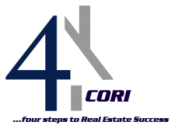Real Estate Notes for Sale in Franklin County
Loan to Value is maximum 50% of property arv
Created by Central Ohio Real Estate Investment LLC
How do real estate note purchase loans work?
Real estate notes for sale produce income from the underlying mortgages, and the investor also benefits from the “collateral gap” between the amount paid to purchase the note and its total value when the note is paid off, refinanced, or if the home is sold.
Unlike owning real estate, from a tax perspective, there isn’t any depreciation advantages owning real estate notes for sale. But there isn’t any tenants, maintenance, contractors, townships, liability, tax bills. or insurance bills either. The only costs associated with buying Franklin County real estate notes for sale is for accounting and for a note servicer.
We call it “Mailbox money.” Every month you walk to the mailbox and get the check!
Franklin County real estate note Buyer Phil said– “I’d rather have a mortgage payment than a rent check any day and not have the tenants, maintenance, contractors, townships, liability, insurance – etc.”
Advantages of Buying and Real Estate Notes for Sale
Collateral
With a note and mortgage you have a secured lien. Risk is relatively moderate, especially with equity to protect the mortgage. “It’s better to have a bad loan with equity, than a bad tenant “. Mortgage notes with a 30% equity cushion are a safe and highly collateralized investment for most real estate investors.
Control
Real estate notes for sale tend to be easier to manage than real property. As an investment, they also tend to be more passive. In effect a note turns tenants and toilets into a non factor. Wells Fargo or Bank of America do not get calls about plumbing leaks. Location doesn’t tend to be as big of a factor when owning the note. It’s easier to own notes in areas that you might not want to buy and hold real estate, especially short term. There’s often less liability and responsibility with owning notes. With notes, not only do you tend to avoid dealing with tenants, contractors and townships, you also tend to avoid issues with vacancies and maintenance.
Profitability (Cash Flow Without Tenants)
Real estate notes for sale and mortgages usually offer comparable returns to hard Real Estate Investing after factoring in management and maintenance.
Opportunity and Creativity with Notes- Selling/Buying Partials
When an investor purchases all the remaining payments it is considered a full purchase. When an investor purchases just a portion of the remaining payments it is considered a partial purchase. In effect it is a 1st on a 1st. Once you have bought one cash flow, it’s easy to go to the performing payor and negotiate the next stream since the paperwork done on the initial deal saved. Typically the buyer of the partial gets paid before the assignor gets theirs. If the collateral is sold or goes through foreclosure the remaining balance goes back to the partial note buyer then to the partial seller
For example, a note has a balance of $100,000 at 10% Early Pay off interest payable in monthly installments of $878 with 360 months (or thirty years) of payments remaining. When the seller sells all 360 remaining payments of $878 to an investor it would be considered a full purchase.
If the investor only sold the first 132 monthly payments of $878 each for $69,900 to a partial investor thus considered a partial sale. Once the partial note buyer received the next 132 months of payments, the note would be reassigned to the investor and the investor would collect the remaining 228 payments (360 total payments less investors partial sale of 132 payments leaves 228 payments remaining to the investor).What You Get The back end –remaining payments could be placed in the investors Roth IRA.
One can maximize the return on investment by accelerating a settlement. It is not uncommon that a note/mortgage may be paid off early either with a refinance or property sale, the notes paper work would reflect the following. Assume an early payoff after 60 months. The UPB is $97,574. It is split between the investor and the partial note buyer investor. The partial investor receives $47,291 and investor receives $49,283.
Volume
The typical note buyer can manage more loans than properties. Loan counselors can handle as many as 15-25 loans per month. How many properties a month can a real estate investor handle? 25/month is unlikely.
Loan Servicers are more affordable than real estate property managers. Property managers can be anywhere from 8-10% of gross rents, sometimes lower if given a large number of units and they often charge one month’s rent to find a tenant. Loan servicers, on the other hand, have a onetime set up charge of @ $25-$100 or so, and monthly fees can range from $10-25/month. There can be similar monthly cash flow on a performing note, as there is on a typical rental property. Many times, real estate investors leave a substantial amount of money in a property, in the form of sweat equity, (70-80% LTV).
Versatility
(Anything you can do with a House, You can do with a Note) You can do almost anything with a note that you can do with real property.
You can flip or wholesale partial notes for sale.
You can rehab real estate notes for sale. Turn a non-performing note into a performing asset.
You can refinance the borrower.
You can sell the full note or you can recoup your original investment by selling a partial note.
You can borrow against the real estate notes for sale, since it’s an asset, also known as a Collateral Assignment.
Increase your IRA or retirement account returns by using these funds to invest in real estate notes for sale in Franklin County Ohio.
Real Estate Notes for Sale Franklin County
Buyers of real estate notes in franklin county



